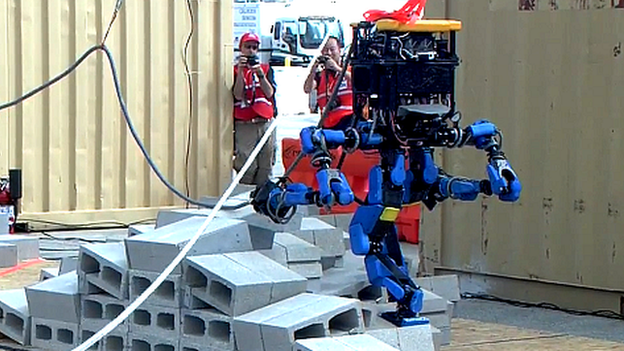South Koreans win Darpa robotics challenge
- Published
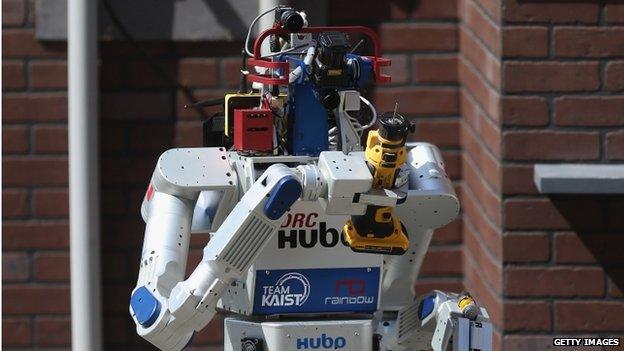
Team Kaist's DRC-Hubo robot completed the course in less than 45 minutes
A South Korean robotics team has won the Darpa Robotics Challenge.
The contest is a battle of robots on an obstacle course meant to simulate conditions similar to the 2011 Fukushima nuclear plant disaster.
Team Kaist's DRC-Hubo humanoid robot defeated 22 others to win the top $2m prize from the US Department of Defense's Darpa research unit, external.
The robots had an hour to complete a series of tasks, such as a driving a car and walking up steps.
The challenge involved a series of tasks for the robots to complete, somewhat autonomously, with intermittent connectivity with their operators to simulate real disaster conditions.
Some of the metallic competitors had trouble staying upright
The challenge was the first where robots performed without being tethered and there were plenty of hard falls, soliciting groans and laughter from the crowds at the contest in Pomona, California.
The other tasks the robots were set included getting out of a car, opening a door, drilling a hole in a wall, turning a valve and crossing rubble either by clearing a path or walking over it.
Team Kaist was the fastest, completing all the tasks in 44 minutes and 28 seconds.
Team IHMC Robotics came second, winning $1m, and Tartan Rescue's Chimp robot was third, winning $500,000, a day after taking a hard fall and then wowing the crowd by getting back up and back to work without human help.
The contest also included two mystery tasks over two days - on day one the mystery was pulling a lever and on day two it was pulling a plug out of one socket and inserting it into another.
Each team was given two attempts to complete the course.
There were meant to be 25 teams competing, but Japan's team Hydra dropped out at the last minute because of an electronics accident during training.
A Chinese team was also due to compete but reportedly couldn't get their visas in time.
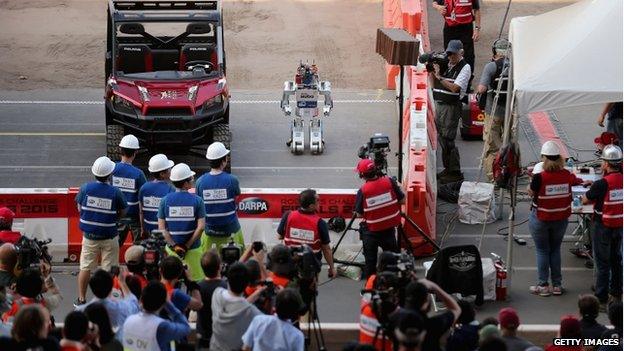
The robots performed without being tethered
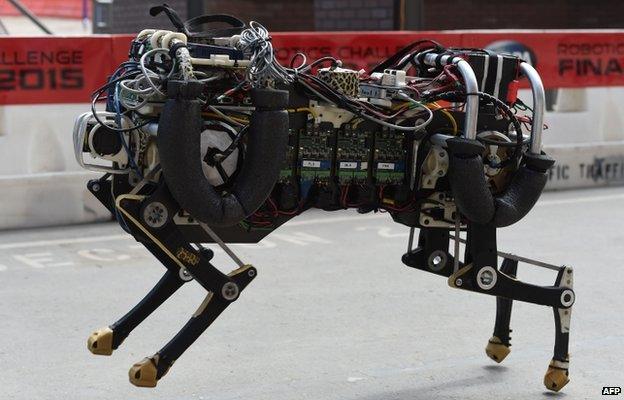
A robotic cheetah was among the machines being put through its paces
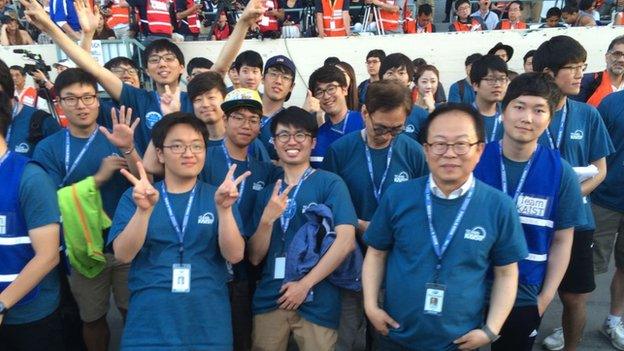
Team Kaist took the $2m first prize
- Published4 June 2015
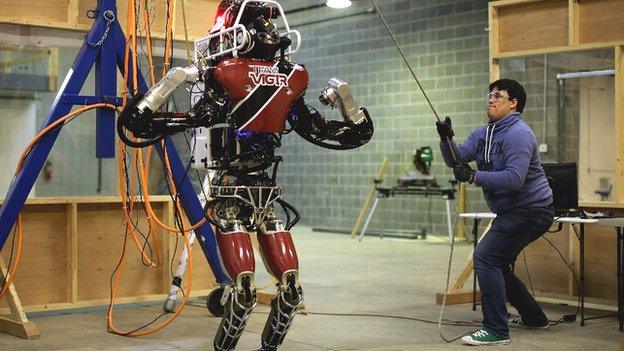
- Published3 June 2015
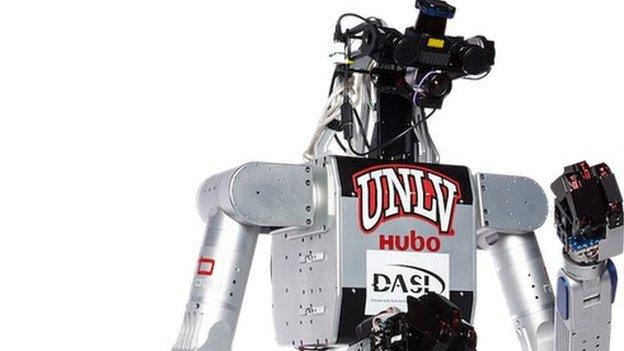
- Published23 December 2013
